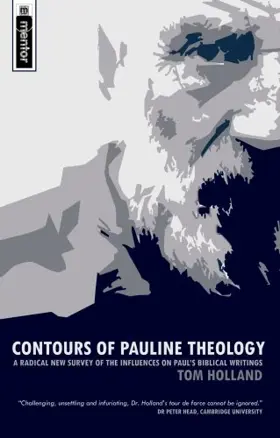

Contours Of Pauline Theology
Pages
382
Publisher
Christian Focus
Published
2004
ISBN-13
9781857924695
The Apostle Paul is a controversial church figure. Many theologians accuse Paul of starting a new religion: of hi- jacking early Christianity in a different direction. Is this a fair charge? Tom Holland points us to a neglected fact, that the Jews in the first century AD would view concepts of salvation through the Exodus of Israel from Egypt to the promised land. Until now, a real elephant in the centre of the hermeneutical room. Such a viewpoint opens up new understanding on Pauline studies it is true of this book that it will change your view of the New Testament and deserves to radically alter New Testament studies in Universities, Theological Colleges and Seminaries around the world.
Reviews
Holland�s primary thesis is to demonstrate that the theology of Paul is strongly indebted to the Hebrew Bible. In chapter 1 Holland rejects the view that Paul Hellenized the Christian message or that he consciously departed from Jesus� teaching (11). He argues rather that Paul�s theology has its roots and model in the Passover and exodus (12). Chapter 2 asserts that Paul picked up the new exodus paradigm through his citations of Isaiah, particularly evident in Romans. Holland writes, �Paul received his theological model from his Jewish upbringing, in which he was taught that Yahweh would bring about the promises New Exodus. He had come to realise that this had been inaugurated by the death of the only Son in his Paschal death� (43). Holland then discusses faulty presuppositions in Pauline theology in chapter 3. He attacks the purported view that Hellenism and Gnosticism are the appropriate backgrounds for New Testament study. Holland writes of a �growing realisatio n that the New Testament is not a collection of Hellenistic writings, as argued by the liberal forefathers, for it is being increasingly recognised to be a collection of essentially, if not entirely, Jewish writings.
[Full Review]
